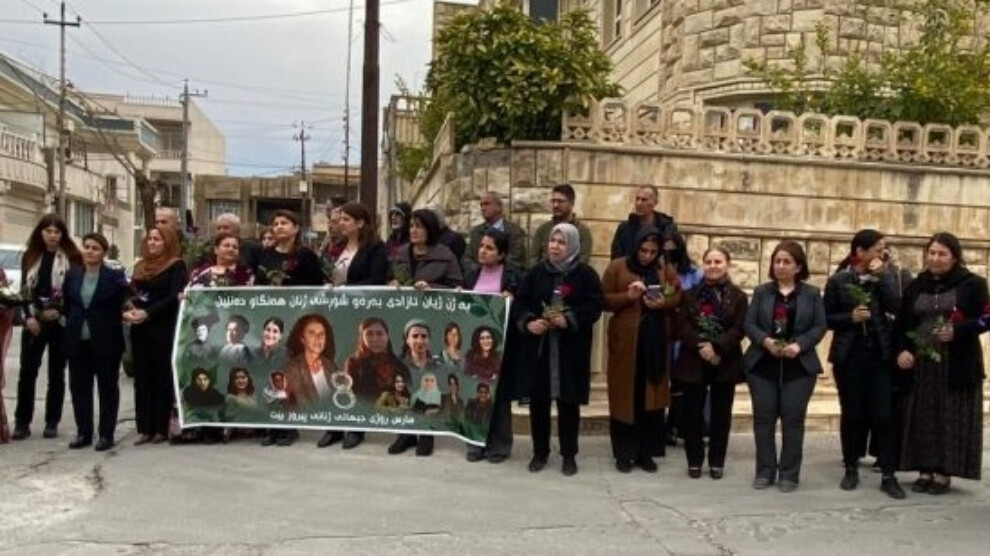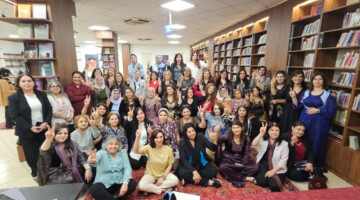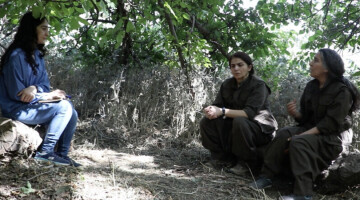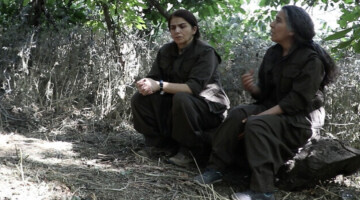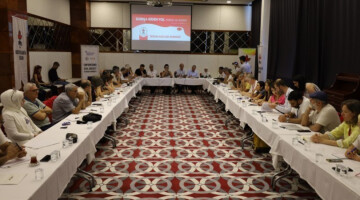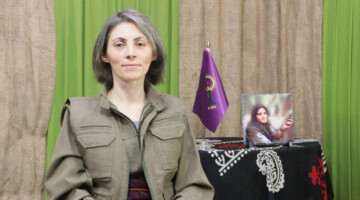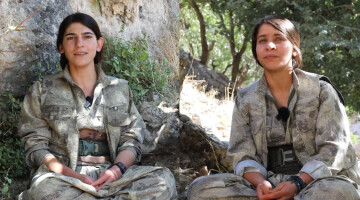The Kurdish journalist, academic and women’s rights defender Nagihan Akarsel was assassinated when leaving her home in Bahtiyar district in the town center of Sulaymaniyah in the Kurdistan Region in Iraq on 4th October 2022. While the killer of Nagihan Akarsel was identified as Ismail Peker from Ankara, hired by the Turkish Intelligence Organization (MIT) to carry out the assassination, no legal steps have been taken to date to convict the perpetrator and clarify the political background of this murder. On 13 October, she was laid to rest in her native village of Gölyazı (ku. Xelîkan) in the Cihanbeyli district of Konya province in central Anatolia.
As part of the March 8 International Women's Day events, members of the Kurdistan Free Women's Movement (RJAK), Kongra Star and mothers in white scarves left piles of roses at the place where journalist Akarsel was assassinated. The commemoration was accompanied by the slogan 'Jin, Jiyan, Azadi' (Woman, Life, Freedom).
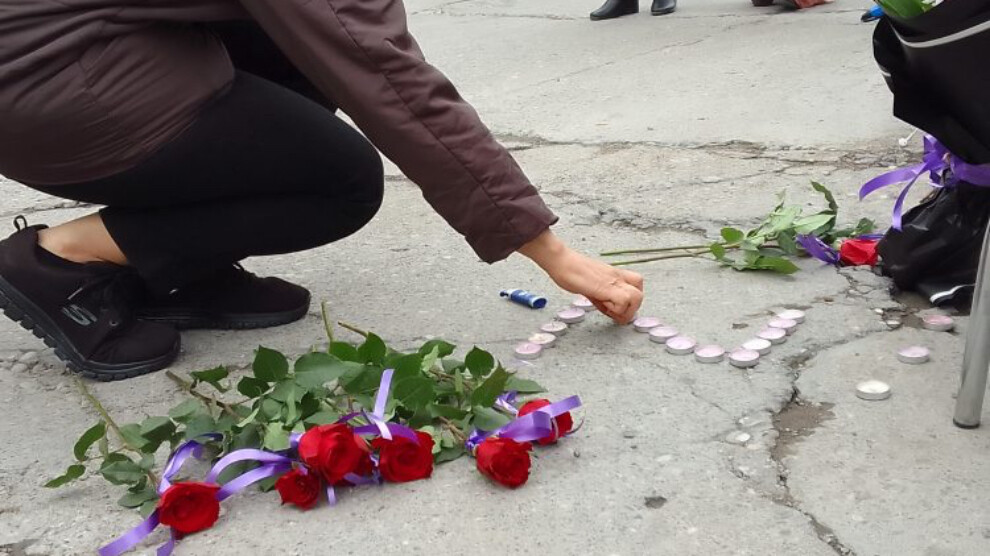
Renowned for her tireless dedication to feminist scholarship and women’s journalism
A figure well-known for her work on women, Jineology, and women’s journalism, Akarsel had been living in Sulaymaniyah for many years as part of her Jineology studies. She was renowned for her tireless dedication to feminist scholarship and women’s journalism. She was a member of the Jineoloji Research Center and Jineology Magazine Editor. In the scope of a project, the journalist-writer was working for the establishment of a Jineology Academy and a Library of Kurdistan Women in Sulaymaniyah. Akarsel was targeted on her way to the Kurdish Women’s Library, Archive and Research Center in Sulaymaniyah, an officially registered institution which she established with other women. The institution opened in Sulaymaniyah on 25 June 2023.
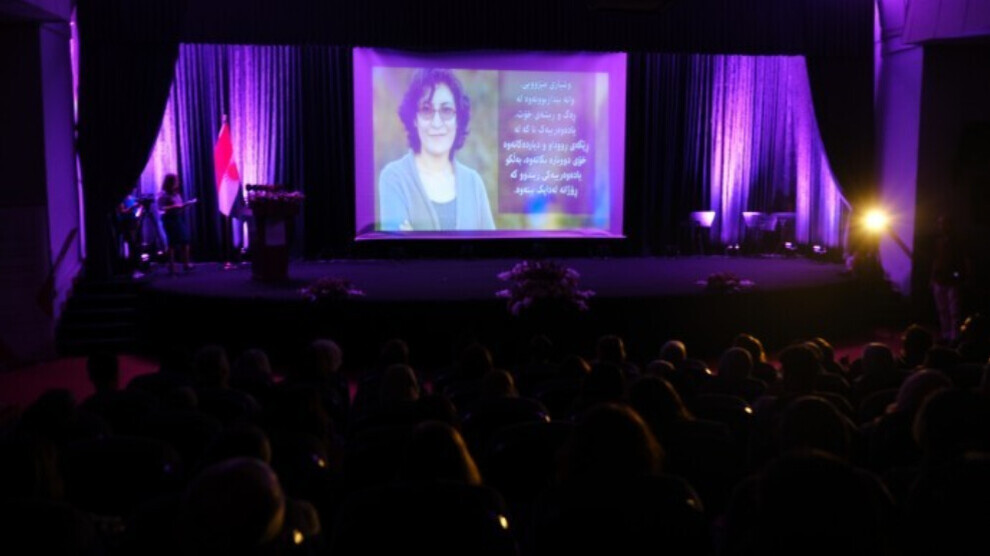
One day after the assassination of Nagihan Akarsel, the police of Sulaymaniyah announced publicly that they had arrested the perpetrators of the assassination. They were reported to be on the run towards Erbil, and captured rapidly after the crime as a result of intense investigation and cooperation between the security forces of Erbil and Koye. According to information disseminated in the media, the killer of Nagihan Akarsel was identified as Ismail Peker from the Turkish region of Mamak in the city of Ankara.
He was apparently hired by the National Intelligence Organization of Turkey (MIT) to carry out the assassination. The fact that Peker was employed by MIT was reinforced by a press statement by Ali Rıza Güney, the Turkish ambassador to Iraq. To date, no legal steps have been taken to convict the perpetrator and clarify the political background of this murder. Neither the Kurdistan Regional Government nor the Iraqi authorities have shown any efforts to resolve this extra-juridical killing, to convict those responsible, or bring accountability to the employers of the killer.
Systemic extra-judicial killings of Kurdish women
The assassination of Nagihan Akarsel joins the systemic extra-judicial killings of Kurdish women committed by state forces during the last four decades. Especially since the beginning of the AKP-Erdogan government, extra-judicial killings targeting activists of the Kurdish Women’s Freedom Movement inside and outside the borders of Turkey have multiplied. In November 2020, the Kurdish Women’s Movement in Europe (TJK-E) created the 100 Reasons campaign – namely 100 cases of extra-judicial killings of women - to prosecute Erdoğan and the AKP government for their feminicidal politics.3 235,727 people signed their support of the demand to indict Erdoğan according to international law.
Jineology
Jineology (Jineolojî), translated as "science of women," is a central component of the Kurdish liberation movement and plays a major role at the institutional level, especially in the Rojava revolution. Jineolojî views women's individual freedom as an indispensable prerequisite for the freedom of society as a whole and focuses on the study of society, history, religion, epistemology and many other areas from a woman's perspective. In doing so, Jineolojî does not limit itself to academic education, but builds centers, conducts seminars, and actively works to empower women at all levels. Jineolojî's research areas were established in northern and eastern Syria in 2015. Meanwhile, Jineolojî has spread to every institution and every aspect of life in northern and eastern Syria, from academies to schools and universities, the defense forces, and into grassroots councils and their commissions.

